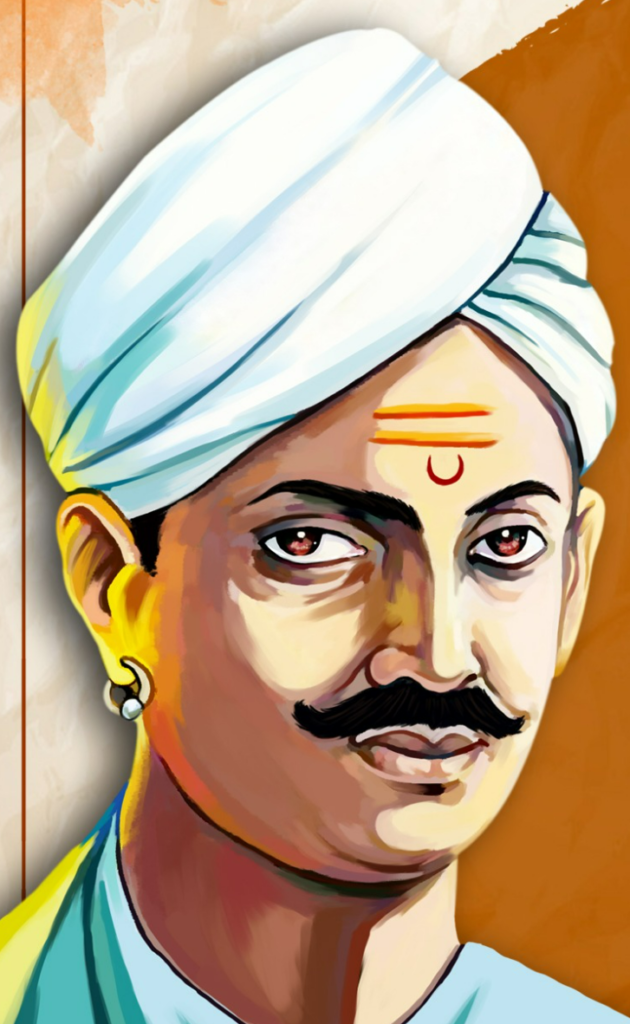On April 8th, we solemnly observe the anniversary of Mangal Pandey’s martyrdom, a revered figure in India’s quest for independence. His name echoes through the annals of Indian history, symbolizing the fervor, bravery, and sacrifice that characterized the struggle for independence against British colonial rule. Mangal Pandey’s legacy is not just about a single act of defiance; it embodies the spirit of resistance that ignited a nation.

Early Life and Background
Born on July 19, 1827, in Nagwa, a village (Ballia district) in Uttar Pradesh, Mangal Pandey was destined to play a pivotal role in India’s fight for freedom. He joined the British East India Company’s army, serving as a sepoy (soldier). However, the oppressive policies and cultural insensitivity of the British administration began to gnaw at his conscience, fueling his resolve to revolt.
The Barrackpore Incident: Igniting the Flame of Rebellion
The incident that immortalized Mangal Pandey occurred on March 29, 1857, in Barrackpore, West Bengal. It was here that he defied British authority, refusing to use the newly issued Enfield rifle cartridges rumored to be greased with animal fat, a taboo for both Hindu and Muslim soldiers. His refusal to comply with the order led to his arrest, sparking a mutiny among his fellow sepoys. This event marked the beginning of the Indian Rebellion of 1857, also known as the First War of Independence.
The Impact and Legacy of Mangal Pandey
Mangal Pandey’s defiance may have been an individual act, but its ripple effect was profound. It served as a catalyst, galvanizing widespread resistance against British rule across India. His courage inspired countless others to rise against injustice, leading to a united front against colonial oppression.
Despite his valiant stand, Mangal Pandey faced a tragic fate. On April 8, 1857, he was hanged for his role in the uprising. His sacrifice, however, was not in vain. It ignited the flames of independence, setting in motion a movement that would eventually culminate in India’s liberation from British rule.
Mangal Pandey’s legacy continues to inspire generations of Indians. His unwavering commitment to the cause of freedom and his willingness to sacrifice his life for the nation serve as a beacon of hope and resilience. His name is etched in the collective memory of the Indian people, a reminder of the power of ordinary individuals to spark extraordinary change.
Honoring Mangal Pandey’s Memory
As we observe the martyrdom anniversary of Mangal Pandey, let us pay homage to his memory and rekindle the spirit of patriotism and unity that he embodied. Let us draw inspiration from his courage and determination as we strive to uphold the values of liberty, equality, and justice for all. Mangal Pandey may have departed from this world, but his legacy lives on, an enduring testament to the indomitable spirit of the Indian people.
Conclusion
Mangal Pandey’s name stands as a symbol of courage and sacrifice, embodying the spirit of India’s struggle for independence. On this day, we honor his memory and recommit ourselves to upholding the principles for which he bravely laid down his life.
